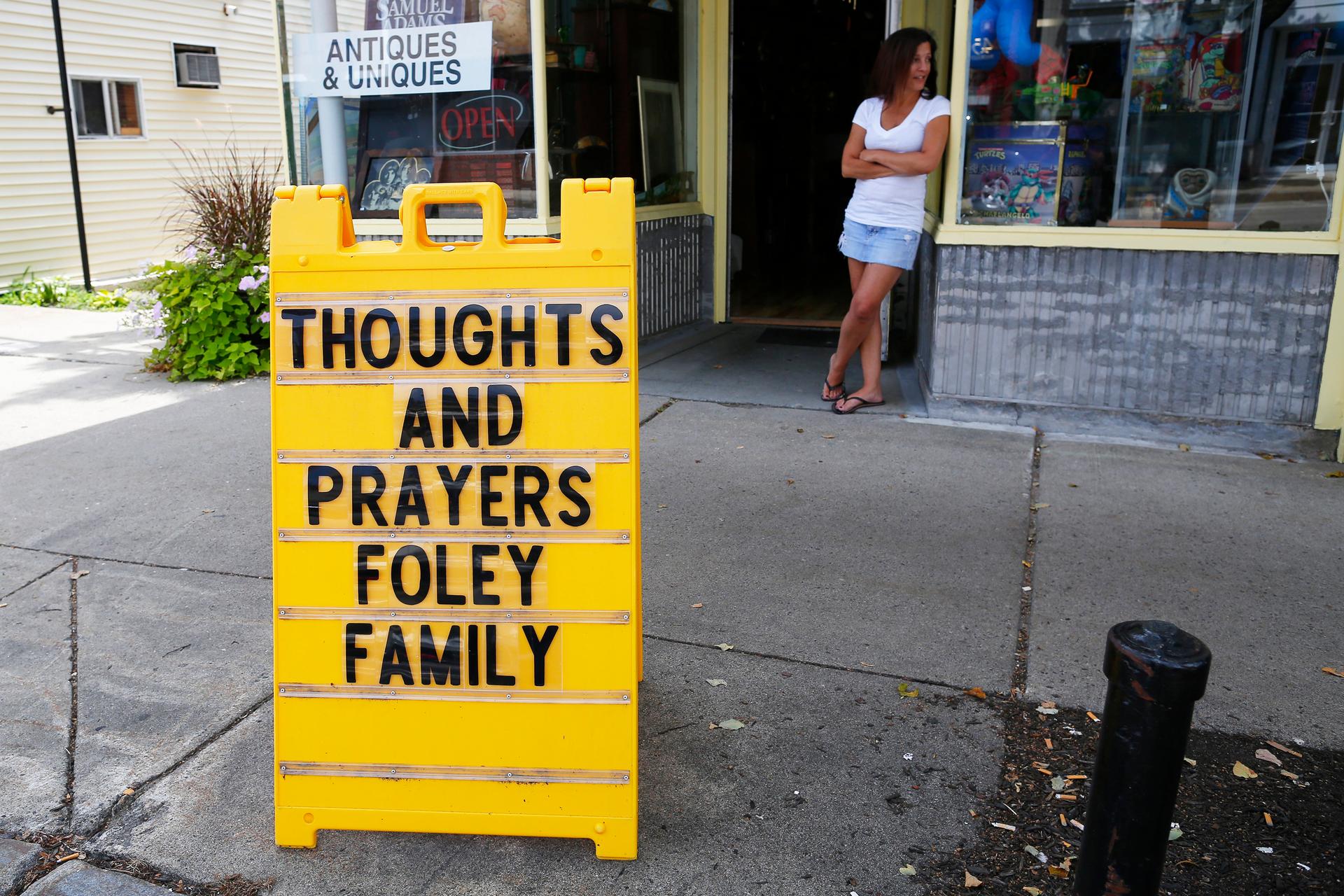War correspondent award event brings hope and comfort to the family of slain journalist James Foley
A sign outside a shop remembers James Foley in his hometown of Rochester, New Hampshire. Foley, 40, was beheaded by members of ISIS in August 2014.
For more than two decades, the Bayeux-Calvados has honored the best work of war correspondents from newspapers, radio, television and photojournalism.
This year's ceremony, though, took on a more somber mood as the parents of James Foley attended the event. Foley was the American journalist who was beheaded by ISIS in August.
The Foleys were invited to attend the event and "their presence really gave the whole event a richer and deeper meaning," said Vivienne Walt, the Paris correspondent for Time Magazine, and one of the judges of the awards. "[The Foleys] courageously wanted to know what James' world had been like and, of course, a number of us, including myself, had met [Foley] in various conflict zones in Libya and Syria and had many stories to tell."
Walt said many of the French hostages who had been detained with Foley for many months also attended the event and shared a lot of detailed information about what Foley's last few months had been like.
"There's something very poignant with the Foley family and the French hostages all at one little table and being aware of the fact that they were released and Foley was not. And there was only one thing that separated them," Walt said. That was the payment of ransoms.
"You would think it would be traumatic," said Walt, meeting survivors. But, in fact, Foley's father John stood up and said that being there had been like "seeing a rainbow after a rain storm. So as difficult as it was for the Foley family, it was also something very healing about meeting all of James' friends and realizing that there was a … tribe of war reporters and photographers traveling around the world and forming very close bonds as a result."
Walt said the Bayeux-Calvados event was about more than just honoring the best journalistic works. There were discussions about creating a group that could help the families of hostages cope while they were in captivity, as well as creating an insurance fund that could help with the ransoms, said Walt. The fund would be targeted at hostages from the United States and the United Kingdom —governments that do not pay ransom.
As is done each year during the Bayeux-Calvados awards event, a memorial is unveiled to honor the journalists killed in conflicts. Still, none of the journalists were really ready to say that they won't go back to a war zone, and "it's very much a kind of badge of honour that they do still go back." However, there is a consensus, said Walt, that because of the dangers facing journalists covering the news in Syria, it's unlikely there will be much information to come out of there.
"This has been a terrible year for war reporters," Walt added.
The World is an independent newsroom. We’re not funded by billionaires; instead, we rely on readers and listeners like you. As a listener, you’re a crucial part of our team and our global community. Your support is vital to running our nonprofit newsroom, and we can’t do this work without you. Will you support The World with a gift today? Donations made between now and Dec. 31 will be matched 1:1. Thanks for investing in our work!
